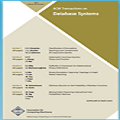Dialogue State Tracking (DST), a crucial component of task-oriented dialogue (ToD) systems, keeps track of all important information pertaining to dialogue history: filling slots with the most probable values throughout the conversation. Existing methods generally rely on a predefined set of values and struggle to generalise to previously unseen slots in new domains. To overcome these challenges, we propose a domain-agnostic extractive question answering (QA) approach with shared weights across domains. To disentangle the complex domain information in ToDs, we train our DST with a novel domain filtering strategy by excluding out-of-domain question samples. With an independent classifier that predicts the presence of multiple domains given the context, our model tackles DST by extracting spans in active domains. Empirical results demonstrate that our model can efficiently leverage domain-agnostic QA datasets by two-stage fine-tuning while being both domain-scalable and open-vocabulary in DST. It shows strong transferability by achieving zero-shot domain-adaptation results on MultiWOZ 2.1 with an average JGA of 36.7%. It further achieves cross-lingual transfer with state-of-the-art zero-shot results, 66.2% JGA from English to German and 75.7% JGA from English to Italian on WOZ 2.0.
翻译:国家对话跟踪(DST)是任务导向对话(ToD)系统的重要组成部分,它跟踪了与对话历史有关的所有重要信息:填充空档,在整个对话中最有可能的值;现有方法一般依靠一套预先定义的价值观,努力在新领域向先前看不见的空档推广。为了克服这些挑战,我们提议了一种以跨领域共同权重的域名(QA)采掘问题解答(QA)方法。为了分解 ToD的复杂域信息,我们用新颖的域过滤战略培训了我们的DST。我们通过排除外部问题样本,将新颖的域过滤战略与新颖的域过滤战略相分离。有了一个独立的分类器,根据背景预测了多个域的存在,我们的模型通过在活动领域提取空格来应对DST。经验显示,我们的模型能够通过两阶段的微调来有效地利用域名化的QA数据集(QA),同时在DST的域名下和开放式域名词库中进行分解。通过在多WO级WEZ 2.1(JGA-JGA)上的平均JGA+7和JGAQA+75的横向结果,从36.7%进一步从JGAAA+GA+GA+GAY。</s>





